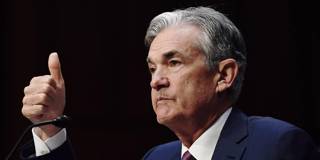
Unconventional Thinking about Unconventional Monetary Policies
Defenders of central-bank independence argue that quantitative easing should have been avoided last time and is best avoided in the future, because it opens the door to political interference with the conduct of monetary policy. But political interference is even likelier if central banks shun QE in the next recession.
KONSTANZ – The policy interest rates of advanced-country central banks are stuck at uncomfortably low levels. And not just for the moment: a growing body of evidence suggests that this awkward condition is likely to persist. Inflation in the United States, Europe, and Japan continues to undershoot official targets. Measures of the “natural” rate of interest consistent with normal economic conditions have been trending downward for years.